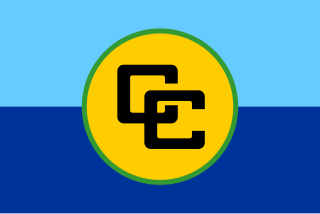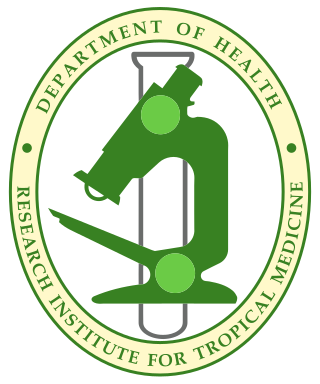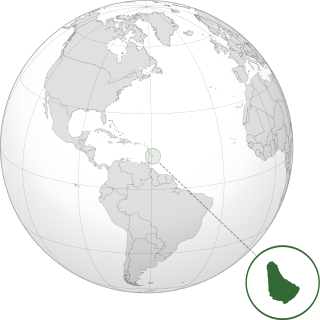
The Caribbean Community is an intergovernmental organisation that is a political and economic union of 15 member states and five associated members throughout the Americas, The Caribbean and Atlantic Ocean. It has the primary objective to promote economic integration and cooperation among its members, ensure that the benefits of integration are equitably shared, and coordinate foreign policy. The organisation was established in 1973, by its four founding members signing the Treaty of Chaguaramas. Its primary activities involve:

The CARICOM Single Market and Economy, also known as the Caribbean Single Market and Economy (CSME), is an integrated development strategy envisioned at the 10th Meeting of the Conference of Heads of Government of the Caribbean Community (CARICOM) which took place in July 1989 in Grand Anse, Grenada. The Grand Anse Declaration had three key Features:
- Deepening economic integration by advancing beyond a common market towards a Single Market and Economy.
- Widening the membership and thereby expanding the economic mass of the Caribbean Community.
- Progressive insertion of the region into the global trading and economic system by strengthening trading links with non-traditional partners.

The Research Institute for Tropical Medicine is a health research facility based in Muntinlupa, Philippines.

Barbados–Guyana relations refers to the current and historical relationship between Barbados and Guyana. The former maintains non-resident diplomatic representation from Bridgetown, while Guyana which prior had a High Commissioner to Barbados appointed its first resident Consul-General, Michael Brotherson to Bridgetown in January 2012.

Foreign relations between Barbados and Japan were formally established on 29 August 1967. Japan is accredited to Barbados from its embassy in Bridgetown (Barbados) and an honorary consulate in the parish of Saint George. Barbados is represented in Japan through a non-resident ambassador in Bridgetown. Japan's new Ambassador for Barbados, Mitsuhiko Okada had announced a new direct embassy to Barbados would be established located in Bridgetown in February 2016.

The National Centre for Disease Control is an institute under the Indian Directorate General of Health Services, Ministry of Health and Family Welfare. It was established in July 1963 for research in epidemiology and control of communicable diseases and to reorganize the activities of the Malaria Institute of India. It has nine branches at Alwar, Bengaluru, Trivandrum, Calicut, Coonoor, Jagdalpur, Patna, Rajahmundry and Varanasi to advise the respective state governments on public health. The headquarters are in Sham Nath Marg, in New Delhi.

Leslie Ramsammy is a Guyanese politician who is a member of the National Assembly.

The BC Centre for Disease Control (BCCDC) is the public health arm for British Columbia's Provincial Health Services Authority.
The COVID-19 pandemic in Guyana was a part of the worldwide pandemic of coronavirus disease 2019 caused by severe acute respiratory syndrome coronavirus 2. The virus was confirmed to have reached Guyana on 11 March 2020. The first case was a woman who travelled from New York, a 52-year-old woman with underlying health conditions, including diabetes and hypertension. The woman died at the Georgetown Public Hospital.

The COVID-19 pandemic in Saint Vincent and the Grenadines was a part of the global viral pandemic of coronavirus disease 2019 (COVID-19), which was confirmed to have reached Saint Vincent and the Grenadines in March 2020. The first confirmed case was discovered on 11 March 2020.

The COVID-19 pandemic in Trinidad and Tobago is part of the ongoing global viral pandemic of coronavirus disease 2019 (COVID-19), which was confirmed to have reached the Republic of Trinidad and Tobago on 12 March 2020.

The COVID-19 pandemic in Antigua and Barbuda was a part of the ongoing viral pandemic of coronavirus disease 2019 (COVID-19), which was confirmed to have reached Antigua and Barbuda on 13 March 2020. As of 6 July 2021, there are a total of 1,265 confirmed cases, of which 1,222 have recovered and 42 have died.
The COVID-19 pandemic in Suriname was caused by Severe acute respiratory syndrome coronavirus 2. The virus was confirmed to have reached Suriname on 13 March 2020. The case was a person who travelled from the Netherlands the previous week. On 3 April 2020, one person died. On 3 May 2020, all nine cases had recovered. On 18 May, an eleventh case was identified.

The COVID-19 pandemic in Grenada is part of the ongoing global viral pandemic of coronavirus disease 2019 (COVID-19), which was confirmed to have reached Grenada on March 22, 2020. Despite lockdowns and social distancing protocols, it appeared to have reached the level of community spread within one month. However, cases continued to decline through May, and by June 18, 2020, the Ministry of Health declared zero active cases — indicating Grenada's efforts were successful in ridding the country of the virus. This situation continued until December 2020, when a small outbreak occurred, associated with the Sandals Resort and a "travel corridor" that did not require guests to be tested for COVID-19. However, this incident notwithstanding, the vast majority of cases in Grenada through August 2021 were those caught during quarantine confinement of incoming travelers. In August 2021, an outbreak of the delta variant resulted in substantial community spread and nearly 200 deaths. By mid-October 2021, however, the outbreak was largely contained and life returned to normal, although a small amount of community spread continued through the rest of 2021.

The COVID-19 pandemic in Barbados was a part of the ongoing COVID-19 pandemic of coronavirus disease 2019 (COVID-19). The outbreak was identified in Wuhan, Hubei, China, in December 2019, declared to be a Public Health Emergency of International Concern on 30 January 2020, and recognized as a pandemic by the World Health Organization on 11 March 2020. COVID-19 is an infectious disease caused by severe acute respiratory syndrome coronavirus 2 (SARS-CoV-2). The case fatality rate for COVID-19 has been much lower than for other coronavirus respiratory infections such as SARS and MERS, but the transmission has been significantly greater, with a significant total death toll.

The COVID-19 pandemic in the Turks and Caicos Islands is part of the ongoing global viral pandemic of coronavirus disease 2019 (COVID-19), which was confirmed to have reached the British Overseas Territory of the Turks and Caicos Islands on 23 March 2020, and the first death occurred on 5 April. On 12 May, all cases were declared resolved, but on 20 June, new cases had been discovered. On 4 July 2021, all cases resolved again. On 8 July, new cases were discovered.

The COVID-19 pandemic in Anguilla is part of the ongoing global viral pandemic of coronavirus disease 2019 (COVID-19), which was confirmed to have reached the British Overseas Territory of Anguilla on 26 March 2020. On 26 April 2020, all patients had recovered and on 22 November a new imported case was announced.
The COVID-19 pandemic in Saba is part of the ongoing global viral pandemic of coronavirus disease 2019 (COVID-19), which was confirmed to have reached the Dutch Caribbean island of Saba on April 12, 2020. At the beginning of the pandemic, the island had a population of just over 1,900 people. As of 12 May, all cases were reported to have recovered. On 1 August, two new cases were imported which resolved on 9 September.
The following is a timeline of the COVID-19 pandemic in Trinidad and Tobago:

Tatsuo Hirayama is a Japanese diplomat. He was the Japanese ambassador to the Republic of Trinidad and Tobago and other CARICOM countries. Hirayama was appointed on 16 January 2019. He previously served as the Consul General of Japan in Perth, Australia.














